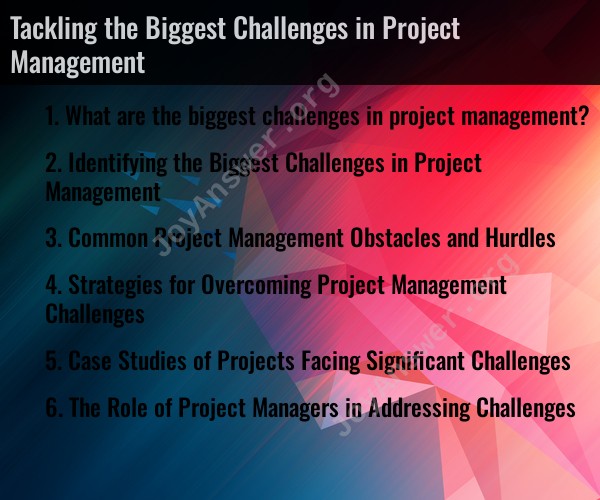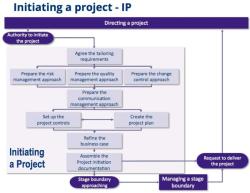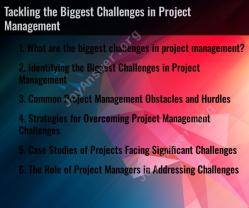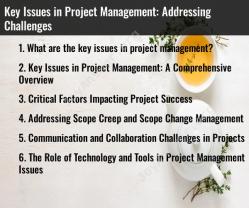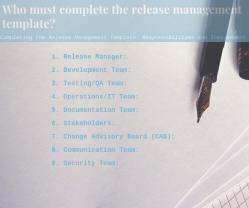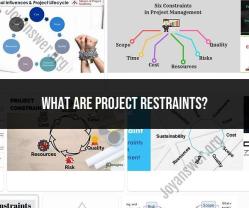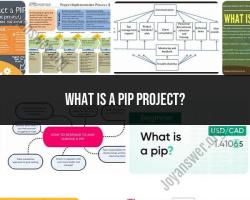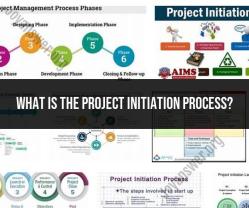What are the biggest challenges in project management?
Project management involves coordinating resources, people, and tasks to achieve project goals within a set timeline and budget. While the specific challenges can vary depending on the project's nature and size, there are several common challenges that project managers often face:
Scope Creep: One of the most significant challenges is managing scope creep, which occurs when the project's scope expands beyond its original objectives without a corresponding increase in resources or timeline. It can lead to missed deadlines and increased costs.
Resource Management: Allocating and managing resources effectively can be challenging, especially when multiple projects compete for the same resources. Resource shortages or overallocation can disrupt project schedules.
Stakeholder Communication: Effective communication with project stakeholders, including team members, clients, and sponsors, is crucial. Poor communication can lead to misunderstandings, conflicts, and unmet expectations.
Risk Management: Identifying and mitigating risks is a critical part of project management. Failing to address risks can lead to unexpected issues and delays.
Quality Control: Ensuring that the project delivers the expected quality can be challenging. Managing quality throughout the project lifecycle is vital to meet stakeholder expectations.
Time Management: Meeting project deadlines is often a significant challenge. Project managers must create realistic schedules and closely monitor progress to stay on track.
Budget Control: Managing project budgets and controlling costs is essential. Overruns can lead to financial strain and affect the project's success.
Change Management: Handling changes in project requirements or objectives can be complicated. Project managers must assess the impact of changes and make informed decisions.
Team Collaboration: Building and maintaining a cohesive project team is crucial. Team dynamics, conflicts, and turnover can affect project performance.
Technology and Tools: Selecting and implementing the right project management software and tools is vital for efficient project tracking and reporting.
Unclear Objectives: Projects with vague or poorly defined objectives can struggle to stay on course and deliver results that satisfy stakeholders.
Lack of Leadership Support: Projects require support and commitment from organizational leadership. Without it, projects may face obstacles and roadblocks.
Cultural Differences: In global projects or projects involving diverse teams, cultural differences can pose challenges in terms of communication, work styles, and expectations.
Regulatory Compliance: Projects in regulated industries must navigate complex compliance requirements, which can add layers of complexity and potential risks.
Sustainability and Environmental Factors: For some projects, environmental and sustainability considerations can present unique challenges, such as adhering to environmental regulations or managing resource conservation.
Remote and Virtual Teams: Managing projects with geographically dispersed teams and remote work arrangements can introduce challenges related to communication, collaboration, and time zone differences.
Vendor and Supplier Management: If a project involves third-party vendors or suppliers, managing these relationships and ensuring they meet contractual obligations is essential.
To address these challenges, effective project managers use a combination of project management methodologies, tools, and soft skills such as leadership, communication, and problem-solving. Additionally, adaptability and a proactive approach to change are essential for successfully managing projects in a dynamic business environment.
Identifying the Biggest Challenges in Project Management
Project management is a complex and challenging endeavor, often involving managing multiple stakeholders, coordinating diverse tasks, and navigating unexpected obstacles. Identifying and addressing these challenges is crucial for project success.
Common Project Management Obstacles and Hurdles
Some of the most prevalent challenges faced in project management include:
Scope creep: This occurs when project requirements expand beyond the original scope, leading to delays, budget overruns, and quality issues.
Inadequate communication: Poor communication among team members, stakeholders, and management can result in misunderstandings, delays, and conflicts.
Unrealistic deadlines and expectations: Setting unrealistic deadlines and expectations can lead to stress, burnout, and compromised quality.
Lack of clear goals and objectives: Without clear and well-defined goals, projects may lack direction and focus, leading to inefficient resource allocation and missed objectives.
Resource constraints: Limited resources, such as time, budget, and personnel, can hinder project progress and restrict the ability to achieve goals fully.
Unforeseen risks and challenges: Unexpected events or challenges can arise during project execution, disrupting timelines, budgets, and overall project success.
Strategies for Overcoming Project Management Challenges
To effectively address project management challenges, consider implementing these strategies:
Define clear and measurable goals: Establish clear, specific, and measurable goals to provide direction and focus for the project.
Thorough planning and scheduling: Develop a comprehensive project plan that outlines tasks, timelines, resource allocation, and potential risks.
Effective communication and collaboration: Foster open and transparent communication among team members, stakeholders, and management to ensure alignment and address issues promptly.
Proactive risk management: Identify potential risks early and develop contingency plans to mitigate their impact on the project.
Regular monitoring and evaluation: Continuously monitor project progress, identify deviations from the plan, and make necessary adjustments to ensure the project remains on track.
Embrace change management: Effectively manage changes to the project scope, requirements, or schedule to minimize disruptions and maintain project goals.
Empower and motivate the team: Create a supportive and motivating work environment to enhance team morale, productivity, and engagement.
Case Studies of Projects Facing Significant Challenges
Numerous case studies illustrate the challenges and opportunities faced in project management:
The Denver International Airport construction project faced significant delays, cost overruns, and technical challenges due to inadequate planning, communication issues, and unforeseen engineering problems.
The Boston Big Dig project, a major highway infrastructure project, encountered delays, budget overruns, and safety hazards due to design flaws, change orders, and poor communication.
The Chernobyl nuclear power plant disaster resulted from a series of safety violations, inadequate training, and poor communication, leading to a catastrophic accident with far-reaching consequences.
The Role of Project Managers in Addressing Challenges
Project managers play a crucial role in addressing challenges and ensuring project success. They should:
Identify and assess potential risks: Proactively identify potential risks that could impact the project and develop strategies to mitigate their impact.
Manage change effectively: Establish clear processes for managing changes to the project scope, requirements, or schedule to minimize disruptions and maintain project goals.
Facilitate communication and collaboration: Foster open and transparent communication among team members, stakeholders, and management to ensure alignment and address issues promptly.
Empower and motivate the team: Create a supportive and motivating work environment to enhance team morale, productivity, and engagement.
Make informed decisions: Gather and analyze relevant data, evaluate options, and make informed decisions based on sound judgment and professional expertise.
Lead and inspire the team: Effectively guide, motivate, and empower team members to achieve project goals and overcome challenges.
